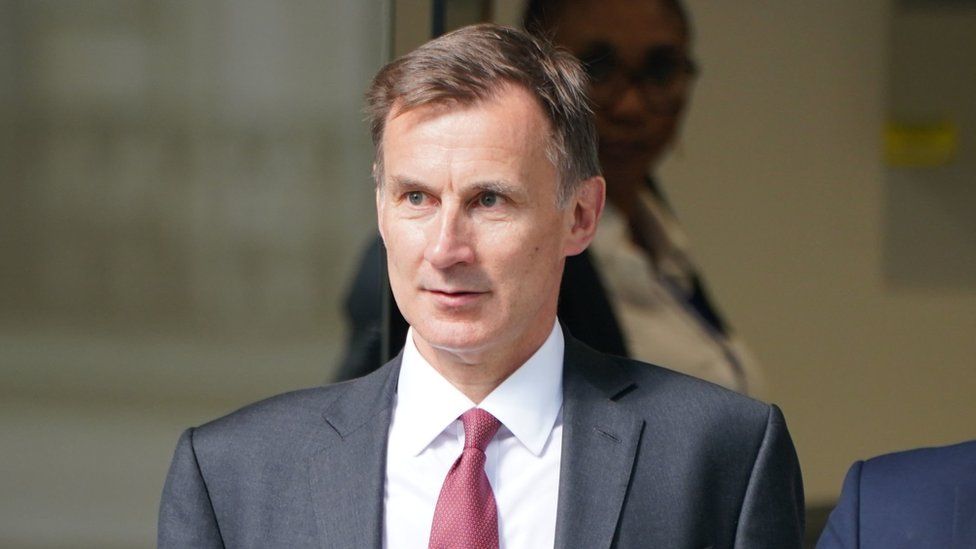ARTICLE AD BOX
 Image source, PA Media
Image source, PA Media
By Political reporter Paul Seddon & Health Correspondent Nick Triggle
BBC News
Quarantining people sooner "might have avoided" the first Covid lockdown, Chancellor Jeremy Hunt has said.
Along with this, the progress of the disease could have been slowed with more testing, the former health secretary told the Covid inquiry.
A "narrow" focus on flu in pandemic planning led to an assumption viruses could not be slowed down, he said.
Mr Hunt told the inquiry that the UK had not learnt lessons from East Asia over the Sars and Mers outbreaks there.
He added that he wished he had done more to challenge this "groupthink" over this.
As health secretary between 2012 and 2018, Mr Hunt, played a key role in overseeing the UK's preparation for a future pandemic.
He is the latest politician to give evidence to the first part of the Covid inquiry, which is looking at how well prepared the UK was to respond to a new disease.
In his testimony on Wednesday, Mr Hunt said the UK was well prepared for pandemic flu, but "we hadn't given nearly enough thought to other types of pandemics that could emerge" during planning exercises during his tenure.
He added that Exercise Cygnus, a government exercise in 2016 to test the response to a flu pandemic, had made no reference to quarantining or testing and took as its "starting point" that 1.2m people were already infected.
He added that there were "no questions asked at any stage" about how the government could stop things getting that bad, something "in retrospect" he now wishes he had challenged at the time.
During the early weeks of the inquiry, one key topic is beginning to dominate: why did the UK not consider in its planning the idea of trying to stop a pandemic virus from taking hold?
Mr Hunt told those assembled that there was a "shared assumption" across western Europe and North America that "herd immunity was inevitably going to be the only way you could contain a virus, because it spread like wildfire".
Lessons were not learned from South Korea, he told the inquiry, which adapted its pandemic approach following the outbreak of Mers, another coronavirus, in 2015, and took greater steps to slow down Covid when it emerged.
South Korea, he told the inquiry, "did not have a lockdown in the first year of the pandemic".
Failing to learn from East Asia was a "blind spot", he said.
'Little attention'
When Covid struck in the UK, he said, government scientific advisers did not come round to a "Korean approach" until transmission of the new disease had increased to 5,000 a day.
"And then it was inevitable you were going to have to use a lockdown," he added. "Had we got on the case much earlier with that approach, we might have avoided that."
He added that a separate government exercise in 2016 based on the Mers outbreak, Exercise Alice, was the "only place" where the "importance of quarantining" was clearly laid out.
However, he said he had not known about the exercise at the time "because it wasn't shown to me," and "it got very little attention, in the grand scheme of things".
Elsewhere in his evidence, he revealed that before Exercise Cygnus there was a protocol that allowed the health secretary to order intensive care beds to be emptied to free up nursing capacity outside hospitals.
The chancellor said he didn't feel comfortable with the idea he might one day be asked to "flick a switch that would have led to instant deaths" - and asked for the protocol to be changed.
He added that he didn't feel comfortable that someone "a long way from front line" could make such a decision, which would be better made by people closer to the situation on the ground, he added.

 1 year ago
45
1 year ago
45








 English (US) ·
English (US) ·